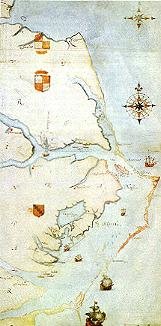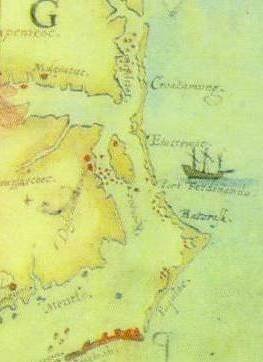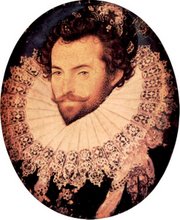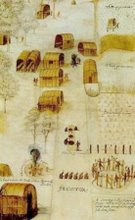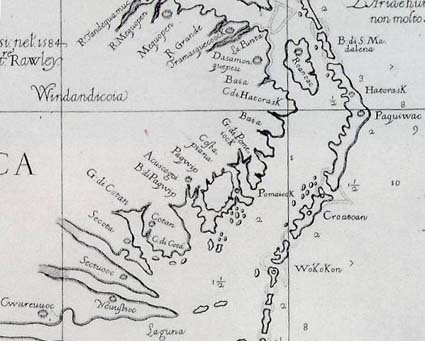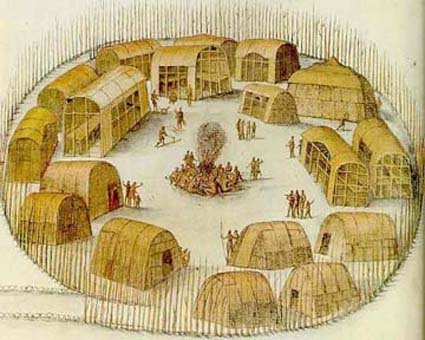by Janet Crain
It is important to remember that this little band of would be settlers carried an enormous weigh on their backs. They were the forerunners of the English colonies that became the United States. Had they been discovered they would have been murdered by the Spanish as the French Huguenots were in Florida. Had John White not have made it back to Ireland and later made an ill fated trip to Roanoke nothing would be known of the colonists.
Fortunately we do know a great deal and after more than 400 years more is being discovered.
Rob Hardy: "A Kingdom Strange"
July 27, 2010 9:42:00 AM
The Lost Colony of Roanoke was a failed initial effort of England to colonize America. It may have been a failure, but it continues to fascinate people; there is a famous outdoor stage production with music that attempts to dramatize the settlement at its site and a reconstructed fort.
The fascination isn't so much because of historic significance, but because the 117 settlers vanished without a trace. That is, almost without a trace. In "A Kingdom Strange: The Brief and Tragic History of the Lost Colony of Roanoke" (Basic Books), historian James Horn finds all the traces we can ever expect to turn up, and speculates on answers as close as we are going to get. That ought to make it an attractive volume for anyone who has heard of the colony's mysterious disappearance.
The larger attraction of the book, however, is to put the colony into historic context. The colony was an attempted blow by Britain against Spain, and what's more, it became lost at least partially because of the larger war between Britain and Spain. The hapless colonists, who if things had gone differently would have been celebrated as the Jamestown settlers are now, were instead the victims of a global war.
Horn imagines that Walter Raleigh, having moved to London in 1575, looked at a map of the New World and saw an extensive New France, and an even greater New Spain, but a "New England" was nowhere to be seen. During the reign of the father of Queen Elizabeth, Henry VIII, there was maritime trading with Europe and the Mediterranean, but little interest in America. Spain, however, had been particularly active in colonizing, and King Philip II had papal authority to convert the indigenous people to Catholicism. He deliberately took action to destroy the French settlements on the coasts of what are now South Carolina and Georgia because he did not want the Protestant heretics to take hold. Philip would have felt the same way about the attempts by Elizabeth to settle her Protestant countrymen into the area, although the British settlers, of course, would feel compelled to convert the heathens to their true church.
http://www.google.com/url?sa=X&q=http://www.cdispatch.com/lifestyles/article.asp%3Faid%3D7114&ct=ga&cad=:s7:f1:v0:i1:ld:e1:p1:t1280280831:&cd=sRGXXiFYHTQ&usg=AFQjCNGSD-JSleC7jChHTnYk8yF2UupGoAThis blog is © History Chasers
Click here to view all recent Searching for the Lost Colony DNA Blog posts


